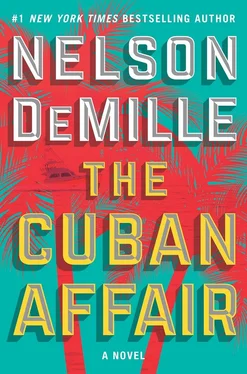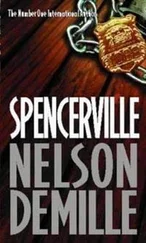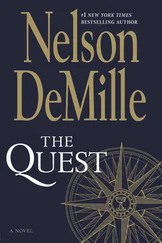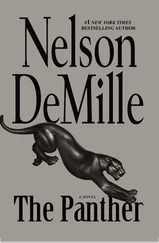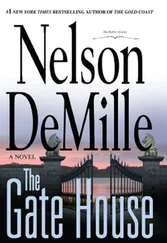On that subject, the Coast Guard had offered us rides home, and Sara and Felipe went to Miami together. Jack wanted a ride to Miami Airport, destination Newark Airport, to see his sister in Hoboken, which was good. Me going to Miami with the three of them would be awkward, so I asked for a ride to Key West. That was two days ago. Sara and I hadn’t exchanged landline numbers, so we both had good excuses for not calling. She had said, however, “Let me work this out and I’ll come see you in Key West.”
I guess she was still working it out. If it took two more days, we’d be passing each other on the Overseas Highway as I was heading north to Maine. I’d always thought about making that trip by car, starting right here at Zero Mile, and following old U.S. One to Portland. So now I decided to do this. Should be interesting. And give me time to clear my head. My parents will be pleasantly surprised at the return of their prodigal son.
I started walking home, but my feet took me toward Charter Boat Row.
On my way through the quiet, palm-lined streets, I gave some additional thought to Cuba — not to what I’d seen, heard, and experienced, but what I hadn’t.
As best I could figure — drawing on my limited knowledge of clandestine operations — Eduardo and his amigos had gone to their amigos in the CIA with a plan. The CIA obviously liked the plan and offered to back it. They were suckers for any plan that included screwing Cuba, even if it wasn’t their own plan. But the CIA likes to control other people’s plans, and take credit if the plan goes well, or take a hike if it goes south.
Bottom line, I was certain that the CIA was more interested in the remains of the American servicemen murdered in Villa Marista prison than they were in Sara’s grandpa’s money hidden in a cave. I was sure the money once existed, and that was Sara’s deep belief. But there was no way of knowing if the money was still there, and if it was, the CIA didn’t care. It wasn’t their money. As for the property deeds, I think the CIA thought these documents might be useful to have in their possession — and not the possession of the Cuban exile community who had their own agenda and did crazy things.
I could imagine the Company seeming to be enthusiastic about Eduardo’s press conference in Miami, and about the storm of outrage it would cause in Congress, the media, the public, and within the MIA and veterans’ organizations. Bye-bye Cuban Thaw.
The CIA, however, had no intention of leaving something as important as American foreign policy to the Cuban exile community. In fact, the Company, while approving and backing the plan of Eduardo and his friends, pictured a different outcome: The Company would take charge of the evidence and control how, when, and if it would be revealed.
I mean, this was a no-brainer, and I was surprised that Eduardo and his amigos didn’t see how the last act was going to be re-written by their CIA partners. And the reason they didn’t see this, I think, is that the Cuban exile community, like the CIA, had such a big hard-on for screwing the Castro brothers that they couldn’t see or think straight. Blinded by hate, the way guys get blinded by lust.
I had no idea what the CIA intended to do with the contents of those two trunks, and for all I knew, the Company — maybe on orders from the top — had come onboard for the Cuban Thaw, and they were going to bury the evidence that would screw it up, like they buried The Maine. Or maybe they’d reveal to certain people in Washington the existence and contents of the trunks, to be used as a bargaining chip in the negotiations. Not my problem, except that I’d like to see those remains returned to their families. And maybe they would be. Quietly. Someday. But in the meantime, the CIA’s story was that the trunks had gone to the bottom of Davy Jones’ locker. Keith said he was sorry about that.
Bottom line, Eduardo, Carlos, Sara, Jack, and I had been used and screwed. As for Felipe, he was obviously the Company’s man in Cuba. He had worked with the CIA on our escape plan, but when the escape by boat became a naval battle, he wanted to broadcast a surrender to the Cuban patrol boats — or more likely he was actually broadcasting a pre-arranged message to his CIA friends that we were in trouble. In either case, it seemed to me that he’d lost his nerve, and maybe lost his trust in his CIA amigos. It happens. But all’s well that ends well; the Black Hawks came to the rescue.
The CIA’s motto, “The truth shall set you free,” was kind of an understood joke, while Key West’s motto, “One Human Family,” is a sad joke. Somewhere in between the cynical lies and a naïve trust in the human race was the true human condition: complex and capable of anything from heroism and self-sacrifice to betrayal and murder. That’s what I saw in Afghanistan, and what I saw in Cuba.
And my final thought on all this was that if we and The Maine had made it to Key West, Keith and his colleagues would have been there to relieve us of the trunks. In the end, there was no way those trunks were going to wind up at a press conference.
The Black Hawk’s timing was a little off, however, and I didn’t know if that had to do with the storm, or if it had to do with Keith not fully understanding our situation, or if it had to do with typical chain-of-command inability to act quickly and decisively. Or maybe, to be cynical, the Company was trying to decide if this whole mission needed to be buried at sea. As I said, I’d worked with CIA Special Ops in Afghanistan, and they were good at what they did. And when they made mistakes — like directing a drone to launch a Hellfire missile into a house full of civilians — it was not a mistake; it had a purpose, and you’d never know what that was, because dead men tell no tales.
So, that was my post-action report and my estimation of the completed but unsuccessful mission. More importantly, my DEROS — Date of Estimated Return from Overseas — had come, and I was home.
My post-action report regarding Sara Ortega, however, was more complicated, and that awaited further Intel.
In life, love, and war, there are usually identifiable winners and losers. But with this Cuban mission, it was hard to tell if anyone won. I think Sara understood that Felipe hadn’t been completely honest with her, and I was sure that the CIA hadn’t been honest with Felipe — or Eduardo. And those two certainly hadn’t been honest with me. Nor had Sara, for that matter, but I’m sure she thought she was lying to me for my own good. That’s the way we justify lies to people we love. As for Felipe, he lied for his own good, but I fucked his girlfriend, so we’d call it even. Did I miss anyone? Well, Jack, who never trusted anyone from the beginning. Old guys have seen too much, and they trust no one. That would be me someday if I lived long enough. As for Carlos... well, Fishy Business indeed.
And all of this reminded me of Antonio quoting Hemingway about how the Cubans always double-crossed each other. I guess Hemingway lived in Cuba long enough to come to this conclusion — and he hadn’t even met Antonio, Carlos, Felipe, or Eduardo. Or Sara Ortega, who hadn’t actually double-crossed me, but who’d lied to me. It occurred to me that the Cuban exile groups and the CIA deserved each other.
I mean, this was all one big circle jerk, and if anyone was a winner, maybe it was the CIA. They needed a win in Cuba. They were long overdue.
I arrived at Charter Boat Row and walked out to the end of the long dock where The Maine had once been berthed, as I’d done so many times in the early-morning hours before sunrise.
The last slip was empty, so no one had yet taken it over.
I looked out at Garrison Bight, at the harbor lights reflecting off the water, and at the clear, starry sky and the moon setting in the west.
Читать дальше
